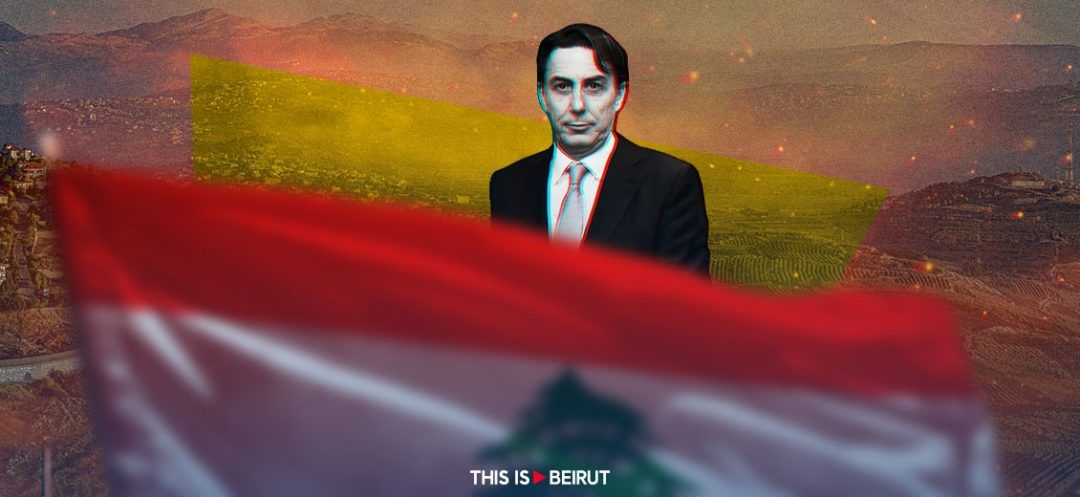- Home
- War in the Middle East
- Hochstein’s Mission: An Issue Essentially Unsolved

Lebanon is stuck in the limbo of war and peace as the United States endeavors to spare it and Israel the catastrophes of a full-fledged war. The Lebanese central authority holds Israel accountable to justify its incapacity to impose peace and stability in Lebanon, but the Americans and Europeans are adamant: Hezbollah is responsible for the escalation of the conflict in South Lebanon. They ask the Lebanese authorities to help Hezbollah back down because continuing on this path could have disastrous consequences for Lebanon and the Lebanese.
Everyone in Beirut is expecting the arrival of Amos Hochstein, President Joe Biden’s main advisor, to know what message he carries from Israel. According to certain information, Hochstein is likely to convey Israel’s clear request for a ceasefire in South Lebanon, followed by immediate talks to solve the 13 points of contention around the Blue Line and the issue of Israeli infringement on the outskirts of al-Mari, better known as Ghajar. This same information indicates that there is no dispute over these points in Lebanon, but that the real litigation is over the Shebaa Farms and the valley of Kfarchouba. The question remains: which country will take over the management of these areas should Israel withdraw?
Syria believes it has sovereignty over the Shebaa Farms and therefore will not cede them to Lebanon. Furthermore, it did not take Lebanon’s request for a maritime border agreement in the north lightly, so it will not show leniency when it comes to the Shebaa Farms. In this context, negotiations are underway to put this area under international tutelage should Israel agree to withdraw, but will Hezbollah agree to that proposition?
Sources have further stated that the crisis far exceeds the issue of reservations and border violations. In fact, for Hezbollah and Iran, the issue in question is intrinsically linked to the events in Palestine and Hezbollah’s role there and elsewhere in the region—the one decided by Iran, that is. In other terms, Hezbollah is still unwilling to give up its weapons and stop doing Iran’s bidding in many countries of the region. Therefore, there needs to be an understanding between Iran and the United States over many of Iran’s interests, including handing Lebanon over to Hezbollah in exchange for peace at the border with Israel.
According to a European diplomat residing in Lebanon, the Europeans have let the Americans work on the peace plan in the South, and the two are coordinating efforts. The diplomat also stated that the Europeans are trying to push Lebanese authorities towards explicitly expressing their desire for peace and stability and that the problem lies in the fact that the Lebanese central authority still refuses to recognize Hezbollah’s responsibility vis-à-vis the escalation, laying the blame solely on Israel and supporting Hezbollah’s refusal to stop engaging against Israel if there is no ceasefire in Gaza. The European diplomat wonders why one would link Lebanon’s fate to Gaza’s, but he received no answer from any Lebanese official. Hezbollah had an answer, however: it would never forfeit Iran’s plan for the region, as the matter at hand goes far beyond the Shebaa Farms and Resolution 1701.
Read more



Comments